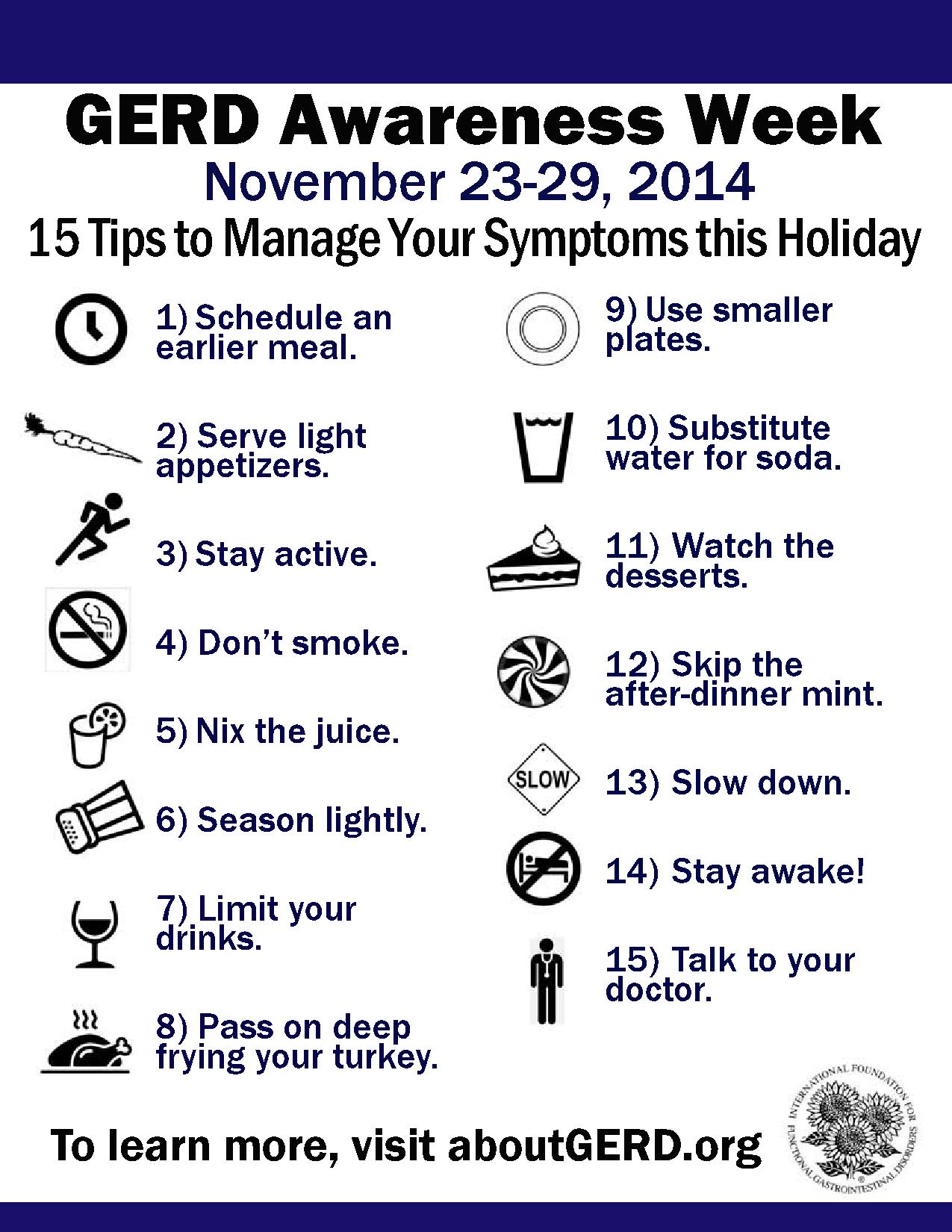
GERD (gastroesophageal reflux disease)
GERD (gastroesophageal reflux disease) is a chronic digestive disorder which affects the lower esophageal sphincter. The lower esophageal sphincter is a ring of muscle that is located at the top of the stomach, it acts like a valve to prevent undigested food and acid from escaping back into the esophagus.
During normal digestion, the lower esophageal sphincter opens up when you swallow, enabling liquids and food to move from the esophagus into the stomach. The lower esophageal sphincter then closes so that it can prevent the stomach`s contents from escaping. In people with GERD, the lower esophageal sphincter doesn’t close properly or becomes relaxed. This allows food and gastric juices to move back into the esophagus and cause troublesome symptoms. Several factors may explain why gastroesophageal reflux occurs and may offer some clues for relief. The most important factors are:
The position of the body after eating or drinking (An upright body posture helps to prevent reflux)
The size of a meal (Smaller meals minimize reflux)
The nature of the foods you eat (Certain substances which weaken the sphincter or irritate the esophagus can cause reflux.)
Symptoms of GERD
The most common symptom of gastroesophageal reflux disease is heartburn, a burning feeling which occurs just behind the breastbone. Other gastroesophageal reflux disease symptoms may include:
Difficulty swallowing
Chest pain
A bitter or sour taste in the back of the mouth
Regurgitation of acid or food
Sore throat
Waterbrash (sudden excess of saliva)
Hoarseness
Inflammation of the gums
Dysphagia (the sensation of food getting stuck in the esophagus)
Bad breath
Laryngitis
Dry cough
Feeling of a lump in the throat
Who is more likely to have GERD?
Anybody can develop gastroesophageal reflux disease, some for unknown reasons. Factors which contribute to this medical condition include abnormal esophageal contractions, slow emptying of the stomach and structural abnormalities of the lower esophageal sphincter. You`re more likely to have gastroesophageal reflux disease if you`re:
Obese or overweight
Taking certain medications
A pregnant woman
A smoker or somebody who is exposed to secondhand smoke regularly
When should I see a doctor?
If you experience heartburn more than 2 times a week, frequent chest pains after eating, persistent nausea, trouble swallowing, and sore throat or a cough that`s unrelated to illness, you might have gastroesophageal reflux disease. For proper diagnosis and treatment, you should be examined by a doctor.
What Is the Treatment for GERD?
Treatment of GERD involves a stepwise approach and usually includes lifestyle and dietary changes, and medications. In severe cases, surgery may be required. The goals of GERD treatment are to:
Reduce reflux or backflow, of stomach juices and acid into the esophagus.
Prevent damage to the mucosal lining of the esophagus, or helping to heal the mucosal lining if damage has occurred.
Manage or prevent health problems and complications which can happen because of GERD, such as stricture or Barrett’s esophagus.
Maintain the symptoms of GERD in remission so that the daily life of the patient is minimally affected or unaffected by reflux.
Doctors recommend dietary and lifestyle changes for most individuals requiring treatment for GERD. Avoiding beverages and foods which can weaken the lower esophageal sphincter is normally recommended. The foods include peppermint, chocolate, coffee, alcoholic beverages and fatty foods. Beverages and foods which can irritate the damaged esophageal lining, like pepper, citrus juices and fruits, and tomato products, should be avoided if they cause GERD symptoms.
Decreasing the size of meal portions can also help to control GERD symptoms. Eating your meals at least two to three hours before bedtime can lessen the reflux by allowing the stomach acid to decrease and the stomach to empty partially. Additionally, being overweight or obese normally worsens symptoms. Most overweight individuals find relief when they lose weight.
Sleeping on a wedge that has been specially designed or raising the head of your bed on six-inch blocks minimizes heartburn by allowing gravity to reduce reflux of the contents of the stomach into the esophagus. Don`t use pillows to prop your body up; this only increases pressure on your stomach.
Along with diet and lifestyle changes, your physician might recommend prescription medications or over the counter treatments.
Antacids can help to neutralize the acid in the stomach and esophagus and stop heartburn. Most people find that non-prescription antacids only provide partial or temporary relief. An antacid that`s combined with a foaming agent can help some people. Foaming agents are believed to create a foam barrier on top of the stomach which prevents acid reflux.
However, long term use of antacids can result in various side effects, including the buildup of magnesium in the body, altered calcium metabolism, and diarrhea. A lot of magnesium can cause serious health problems in people with kidney disease. If they are required for more than two weeks, a medical doctor should be consulted.
For chronic heartburn and reflux, the doctor can recommend thingsthat reduce acid in the stomach. ).
Another kind of drug, the acid pump inhibitor (or proton pump inhibitor), inhibits an enzyme that`s necessary for the secretion of gastric acid in the stomach.
Surgery is recommended for severe GERD cases. Surgical therapy normally removes the nerves which help produce gastric acid.
The problems which might occur after surgical procedures include flatulence or gas, difficulty in swallowing, difficulty in burping and bloating.
Are there long-term health problems associated with GERD?
GERD can damage the lining of the esophagus, and this may cause esophagitis (inflammation), although normally it doesn`t. GERD can also lead to Barrett’s esophagus, a pre-cancerous medical condition which requires periodic endoscopic surveillance for the development of cancer.


